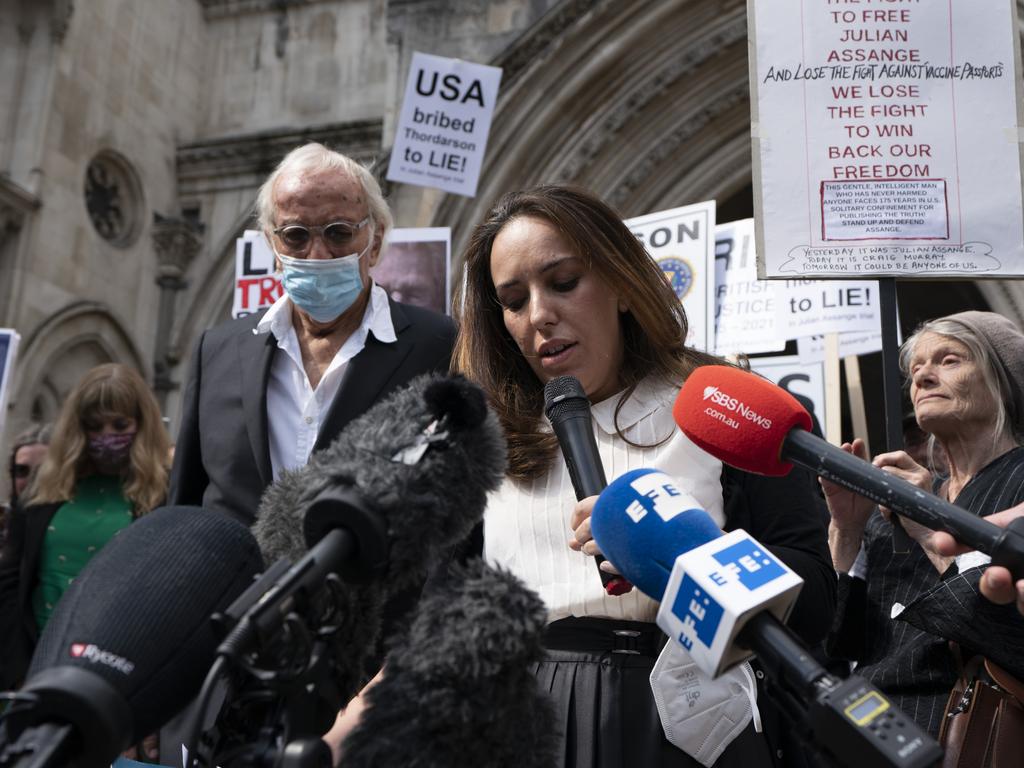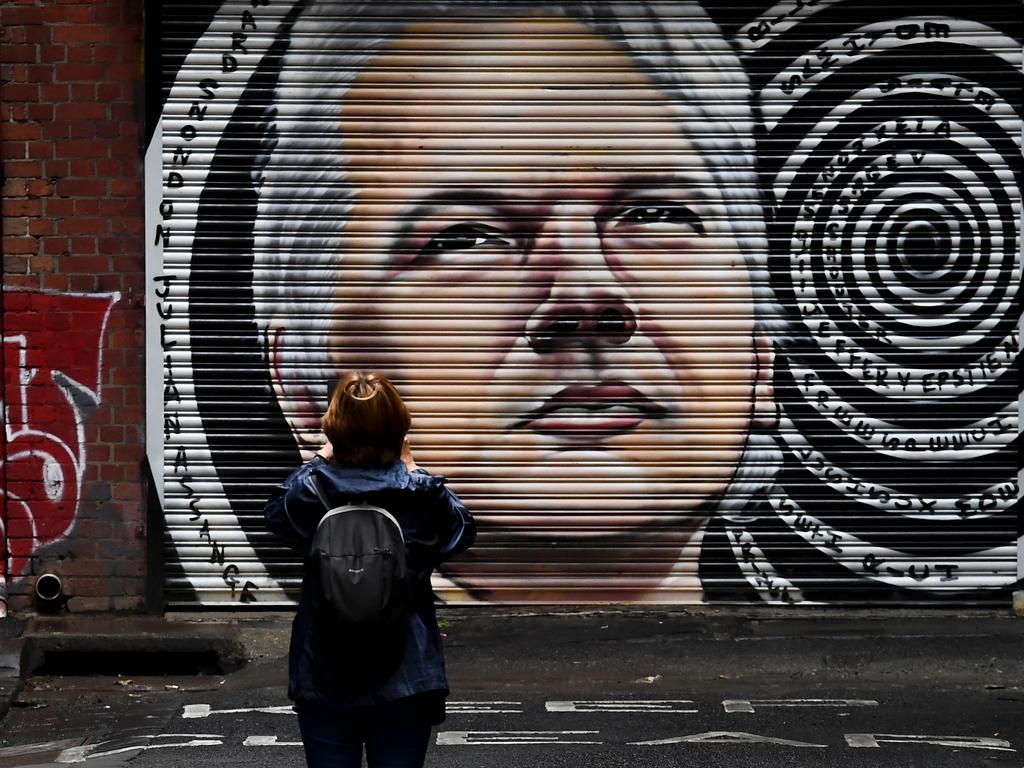Julian Assange on verge of extradition to face espionage charges as US wins appeal
Julian Assange is on the verge of being extradited after the US won an appeal in the British High Court late on Friday.

Julian Assange is on the verge of being extradited after the US won an appeal in the British High Court late on Friday.
Assange’s fiancee, Stella Moris, outside the London court slammed the decision as a “grave miscarriage of justice” and that it was “dangerous and misguided”.
“How can if be fair, how can it be right, how can it be possible, to extradite Julian to the very country which plotted to kill him?” she said.
“Today is International Human Rights Day. What a shame, how cynical to have this decision on this day. This goes to the fundamentals of press freedom and democracy.”
An investigation in September showed the CIA had sketched options of dealing with Assange during his nearly seven years seeking asylum in the Ecuador embassy in London, including kidnap and rendition.
Washington challenged a decision made in January that the 50-year-old Australian would be a suicide risk if he was transferred to face charges in the US, which wants to try him for WikiLeaks’ publication in 2010 of classified military documents.
US lawyers argued that the original judge had not given sufficient weight to other expert testimony about Assange’s mental state.
The High Court has sent the Assange extradition case back to the Magistrate Court where the file will then be presented to Home Secretary Priti Patel for a final decision on whether Assange should be extradited.
High Court judges Ian Burnett and Timothy Holroyde addressed two of the main concerns raised by the original judge.
They said the risk of oppressive conditions had been removed by the US government assurances that Assange would not be subject to Special Administrative Measures (SAMs), which includes solitary confinement, or be held in the notorious ADX Florence detention centre.
“Once that risk is removed by the assurances, the judge would have reached a different decision,’’ the High Court said.
Another factor in the decision was a diplomatic note to allow the WikiLeaks founder to serve any future American sentence in an Australian jail.
The High Court was not swayed by the arguments of Assange’s legal team that there may be “obvious and compelling reasons’’ why the Australia government may not allow Assange to transfer to an Australian jail even if he is sentenced by the US.
The High Court rejected the arguments that such a prisoner transfer would rest upon the political climate at the time, may be prohibitively expensive and that Australia may decline to execute the sentence.
Assange will remain behind bars at Belmarsh Prison in London during the latest process and he is likely to launch an immediate and final appeal to the Supreme Court.
Assange faces 17 espionage charges relating to the release of hundreds of thousands of classified US documents and files relating to the Iraq and Afghanistan war logs, the US embassy cables, and the Guantanamo files in 2010 and 2011.
He faces a maximum sentence of 175 years if convicted on 17 counts of espionage.
The High Court had also heard that the SAMS waiver “was not a blank cheque” and Assange could face such measures if he commits a future act that meets the test for SAMS.
Additional reporting: AFP







